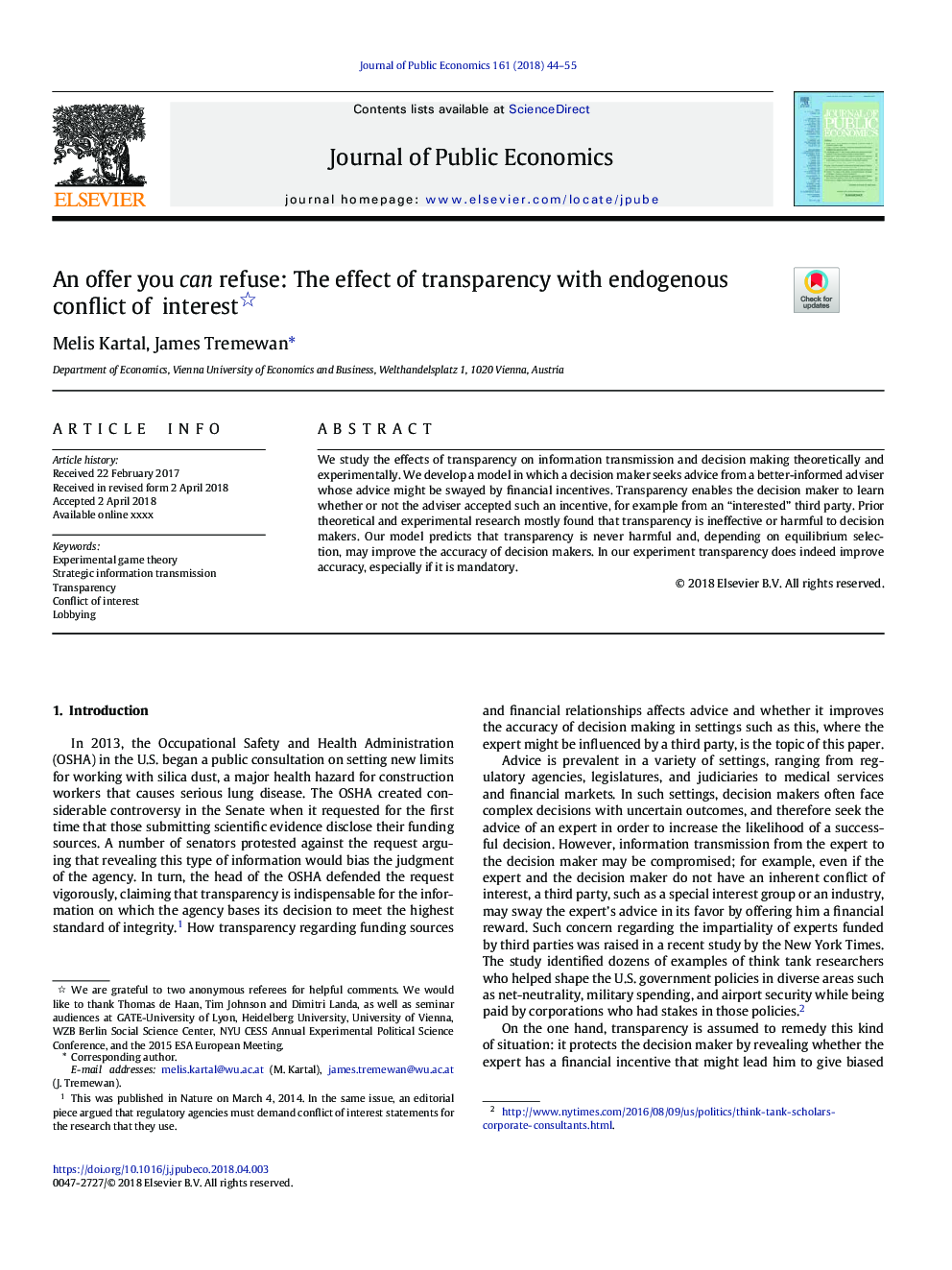| Article ID | Journal | Published Year | Pages | File Type |
|---|---|---|---|---|
| 7369455 | Journal of Public Economics | 2018 | 12 Pages |
Abstract
We study the effects of transparency on information transmission and decision making theoretically and experimentally. We develop a model in which a decision maker seeks advice from a better-informed adviser whose advice might be swayed by financial incentives. Transparency enables the decision maker to learn whether or not the adviser accepted such an incentive, for example from an “interested” third party. Prior theoretical and experimental research mostly found that transparency is ineffective or harmful to decision makers. Our model predicts that transparency is never harmful and, depending on equilibrium selection, may improve the accuracy of decision makers. In our experiment transparency does indeed improve accuracy, especially if it is mandatory.
Keywords
Related Topics
Social Sciences and Humanities
Economics, Econometrics and Finance
Economics and Econometrics
Authors
Melis Kartal, James Tremewan,
